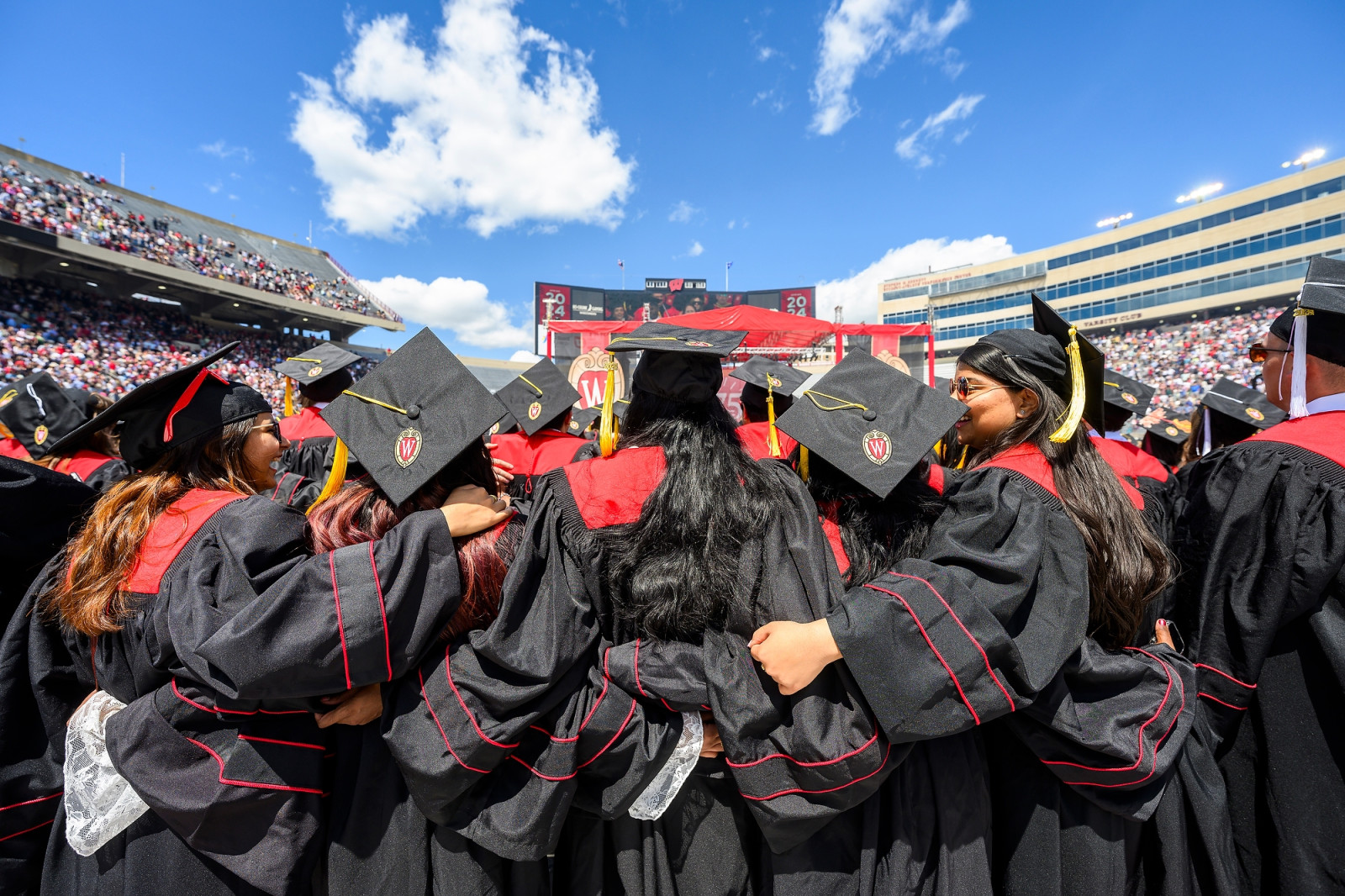Greetings from the Center for Campus History! Happy end of the semester and congrats to this year’s graduates! We’ve been busy this month documenting history unfolding here on campus and there’s plenty to share in this edition of the newsletter: Center updates, finds from the archives, book and podcast recommendations, and more!
The University of Wisconsin–Madison’s Rebecca M. Blank Center For Campus History is an ongoing university effort to uncover and give voice to those who experienced, challenged, and overcame prejudice on campus. As always, if you have a story to share, an event you think should be researched, or a person you think has been overlooked, please email us at centerforcampushistory@wisc.edu.
|
|
|
|
|
|
Once again, a huge congratulations to the class of 2024, including two of the Center’s very own student researchers: Amaya Boman and Kylie Hollenstein!
Both Amaya and Kylie completed undergraduate degrees in history. Amaya’s research mainly focused on civil rights and education, while Kylie’s primary focus was 19th century American history. We’re grateful for their contributions to the CCH and can’t wait to see what they do next!
|

|
UW-Madison/Althea Dotzour
|
|
|
|
Often we’ll use a chunk of the newsletter to highlight something the Center has been working on recently. But over the last few weeks, that work has looked less like writing blog posts or developing exhibit materials, and more like experiencing history first-hand.
During this month’s campus protests against the war in Gaza, members of our team were on hand to support students and document a new chapter of the university’s history unfolding in real time. Check out this story from the Cap Times that features CCH Director Kacie Lucchini Butcher talking about the larger context of protests at UW and the importance of recording the present to help tell the story of this moment in the future.
|
|
|
|
|
|
UW-Madison students protesting war. Police on campus using force against them. This striking photo from the UW Archives shows it happening nearly six decades ago during the 1967 Dow Chemical protests. That same tradition of bearing witness to history is alive and well, as these images from student journalists covering current protests make clear.
|

|
Two police officers with billy clubs attempt to drag away Vicki Gabriner, in whiteface wearing a sign reading "Sifting and Winnowing," during the Dow Chemical protests in October 1967. UW Archives
|
|
|
|
We get asked a lot of questions about UW history. Each month we’ll answer one in the newsletter.
This month: How does the recent pro-Palestinian encampment fit in with the history of past anti-war protests at UW-Madison?
The answer: The short answer is that there is a long tradition of student protest at UW, both in opposition to war, and over other issues like rights for students of color, LGBTQ students and those with disabilities. Much like the Gaza encampment, student actions including the 1967 Dow Chemical protests and the 1969 Black Student Strike demanded specific actions from administrators, and resulted in violent responses from law enforcement.
|
|
|
|
|
|
Each month, we like to share one of the many (many… many… ) books that have helped the Center’s research. This month we’re recommending They Marched Into Sunlight from journalist and historian David Maraniss.
Using the events of October 1967 as a window to explore much broader questions about US involvement in the Vietnam War, the book ranges from the story of a bloody Viet Cong ambush against American soldiers to the antiwar Dow Protests at UW-Madison and the subsequent violent crackdown. Drawn from thousands of primary documents and nearly 200 interviews, the book describes the battles that evoked cultural and political conflicts still reverberating today.
|
|
|
|
Each month Center Director Kacie Lucchini Butcher will share a book, podcast, movie, quote, or something else she thinks has been adding to the CCH. We're calling it "From The Desk of KLB".
This month From the Desk of KLB, NPR’s Throughline podcast.
Journalists Rund Abdelfatah and Ramtin Arablouei call their show a time machine that uses history to frame today’s headlines and ask "How did we get here?"
|
|
|
|
As always, if you have a story to share, an event you think should be researched, or a person you think has been overlooked, please email us at centerforcampushistory@wisc.edu.
|
|
|
|
|